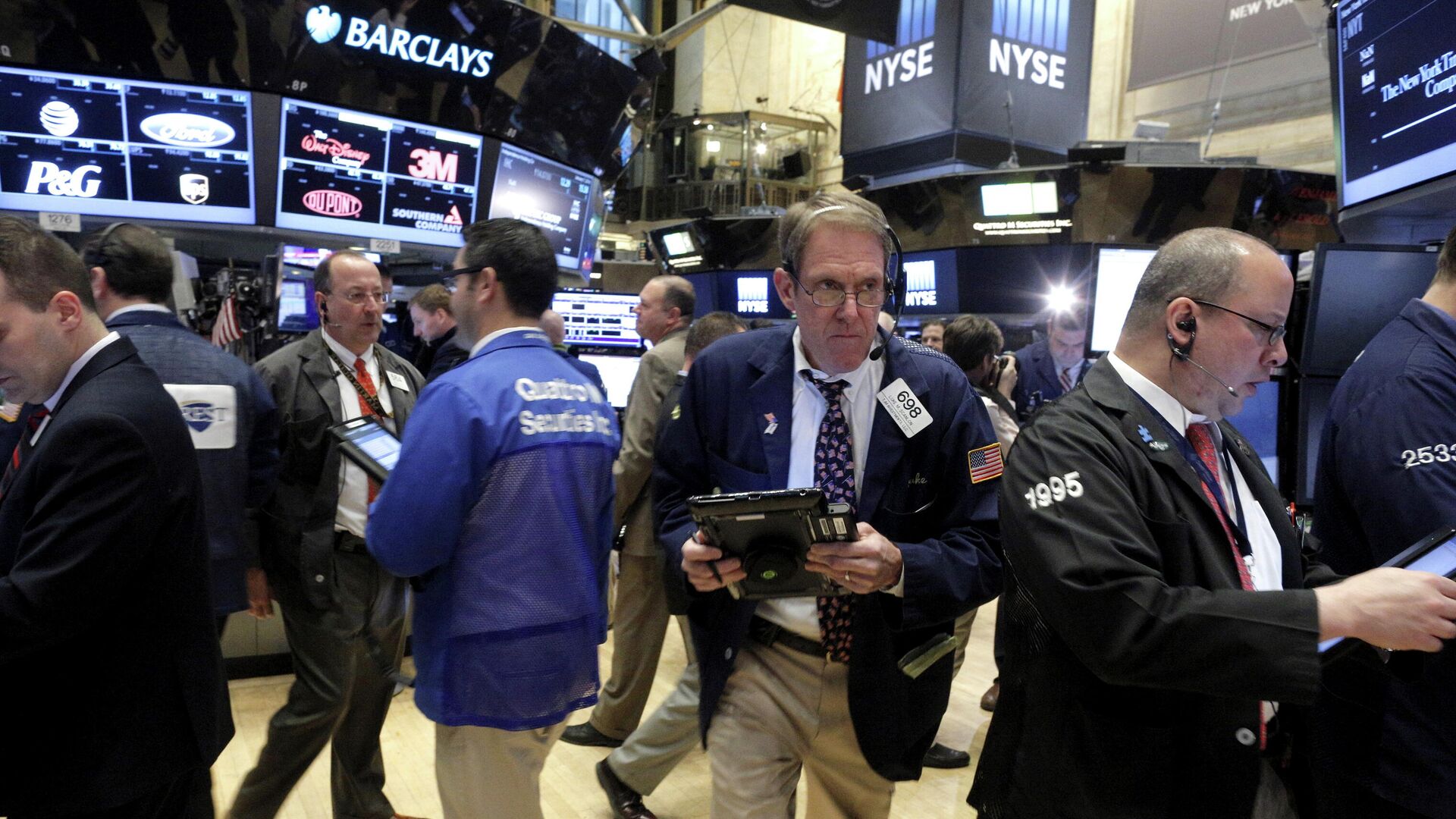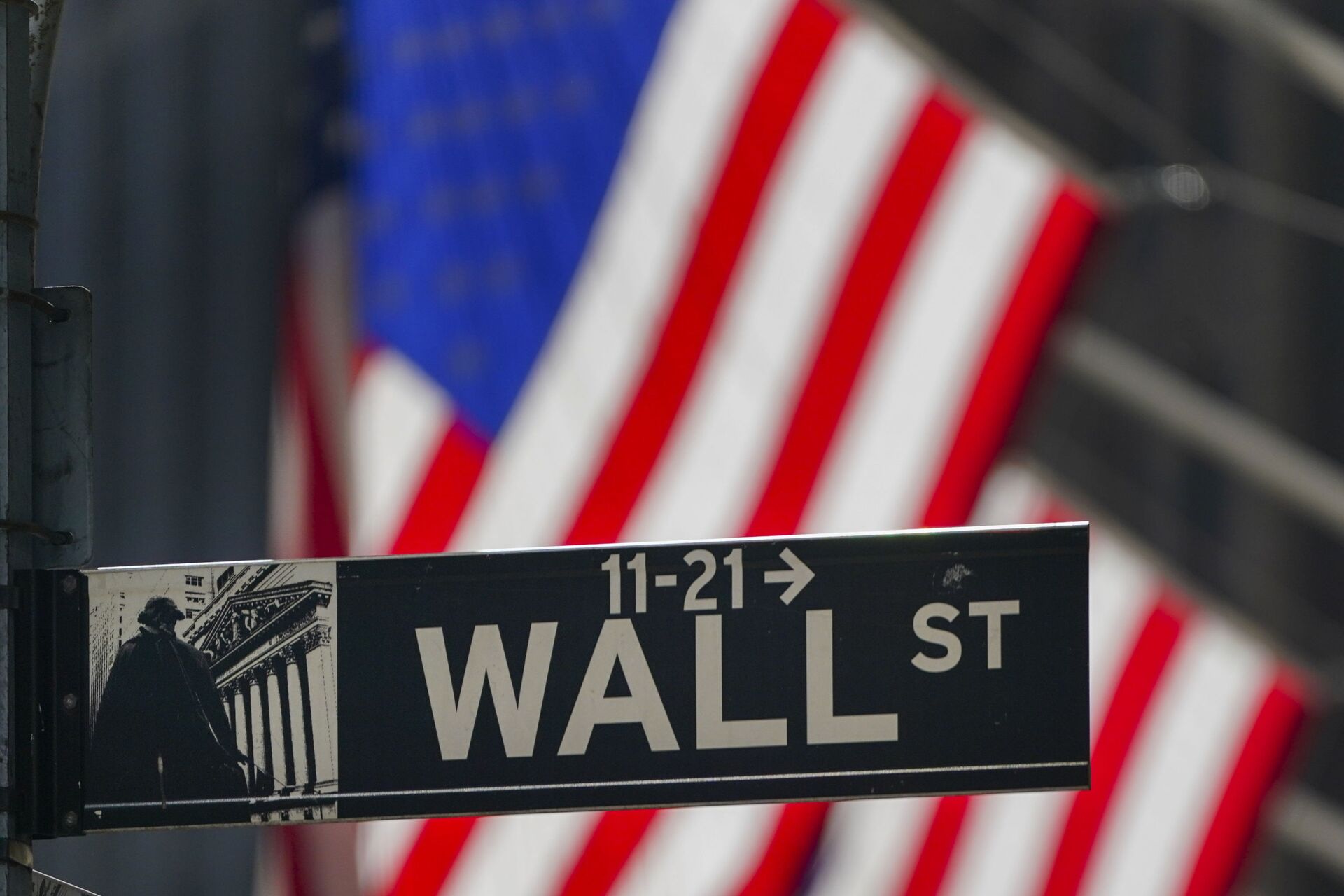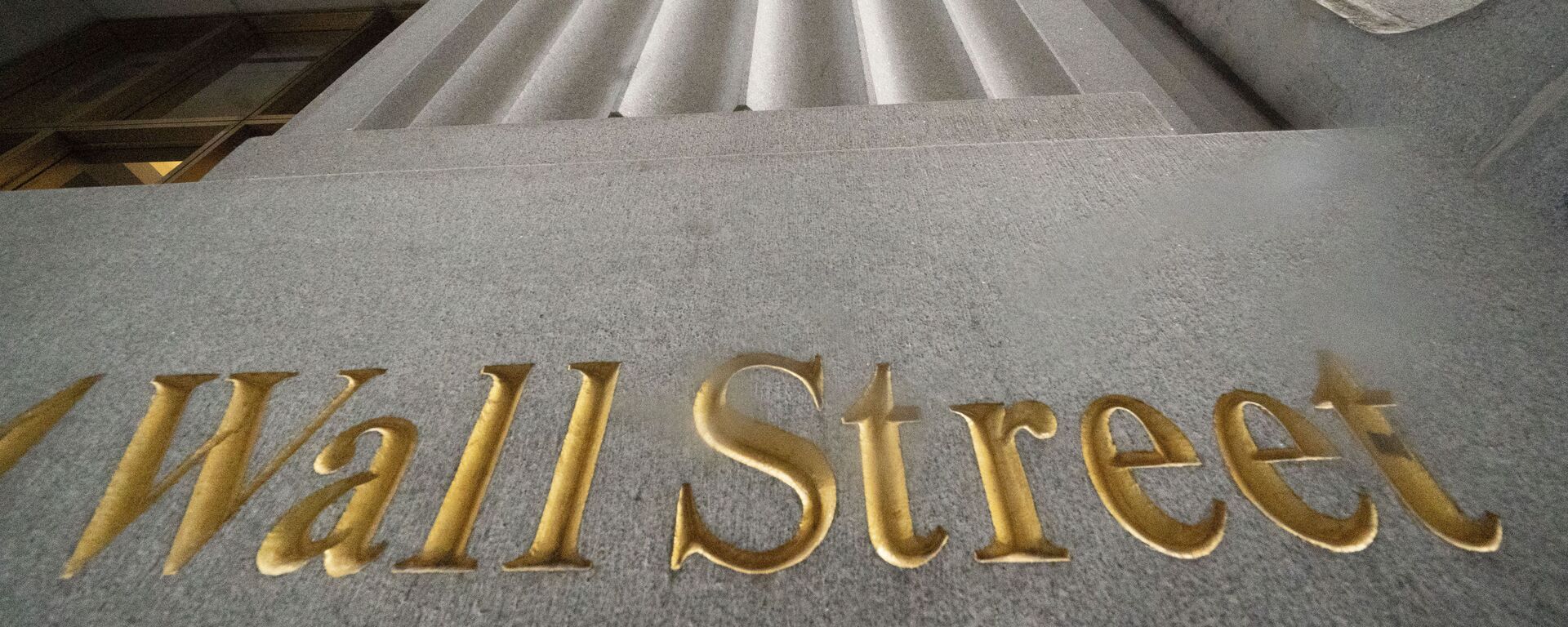Top 10% of Richest Americans Own About 90% of Stocks on US Markets - Report
21:12 GMT 18.10.2021 (Updated: 21:17 GMT 18.10.2021)

© REUTERS / Brendan McDermid
Subscribe
The stock market, which has roughly doubled since its March 2020 low and is up almost 40% since January 2020, reportedly has been the primary source of wealth creation and inequality in the US during the pandemic.
The richest 10% of Americans now own 89% of all stocks in the country, thus marking a new milestone that underlines the stock market's role in widening wealth gaps, CNBC reported on Monday, citing new data from the US Federal Reserve.
According to the report, the richest 1% gained more than $6.5 trillion in corporate equities and mutual fund wealth during the COVID-19 pandemic, while the poorest 90% gained $1.2 trillion.
In the second quarter this year, the wealthiest 10% of Americans reportedly owned a record amount of corporate equities and mutual funds, while the lowest 90% of Americans owned only around 11% of stocks, down from 12% before the pandemic.
The figures reportedly reveal that the top 1%'s total wealth has reached a new high of 32%. Stocks accounted for about 70% of their wealth growth over the past year and a half, making it one of the quickest asset booms in recent history.
"The top 1% own a lot of stock, the rest of us own a little," a senior fellow at the Urban-Brookings Tax Policy Center, Steven Rosenthal, is quoted in the report as saying.
Despite millions of new investors entering the stock market over the past months, for the first time since the start of the outbreak, the concentration of wealth is expanding, leading to what many experts and media outlets have dubbed "the democratization" of stocks.
Interestingly, over the past two years, Robinhood, a company providing commission-free trading via an app, has added more than 10 million new accounts, per the firm's Q2 results report, bringing the total number of accounts to over 22 million, many of which are owned by younger, first-time investors.

In this Wednesday, Oct. 14, 2020 file photo, the American Flag hangs outside the New York Stock Exchange in New York
© AP Photo / Frank Franklin II
Despite the fact that the market is increasingly widely owned by many more investors, the gains and income it generates are not equally distributed.
While the influx of new investors is rather large, according to Rosenthal, they are still minor, with the average account size at Robinhood reportedly being around $4,500. When the stock market rises, they will see significantly lower dollar returns than wealthy investors with stock portfolios worth hundreds of thousands or perhaps millions of dollars.
"Many of the younger investors also bought in at higher prices, compared to bigger investors who have been in the market for years and see larger gains," Rosenthal explained.
In addition, many of those new investors reportedly have a trading mentality, buying and selling stocks quickly and with leverage in the hopes of making quick profits. While such a technique has the potential to produce big winners, it may also lead to lesser returns than investors who just purchase and hold for the long term.
Overall, the value of the top 10%'s stocks reportedly increased by 43% between January 2020 and June 2021. The bottom 90% of the population saw their stock wealth rise at a slower rate of 33%.
"They might account for a larger share of trading activity, but that’s different from ownership and wealth," Rosenthal concluded.
US Markets Will Eventually 'Hit the Wall' Due to Inflation
In the meantime, earlier in the day, during an interview with CNBC, Wall Street mogul Carl Icahn predicted that in the face of an enormous money supply and growing inflation, US markets could face serious issues in the long run.
"In the long run we are certainly going to hit the wall," he told the channel's “Fast Money Halftime Report." "I really think there will be a crisis the way we are going, the way we are printing money, the way we are going into inflation. If you look around you, you see inflation all around you and I don’t know how you deal with that in the long term."
To help the economy recover from the pandemic, the Federal Reserve and Congress have released trillions of dollars in stimulus. According to reports, the Federal Reserve's balance sheet grew by more than $3 trillion as a result of its open-ended quantitative easing program, while the government spent more than $5 trillion to help Americans cope with the healthcare crisis.
This huge money supply has played a role in the economy's rising pricing pressures. In August, inflation hit a new 30-year high, according to US Bureau of Economic Analysis data, owing to supply chain disruptions and unusually high demand.
What a disaster! pic.twitter.com/iGlbvmvQie
— Jeb Handwerger (@goldstocktrades) October 18, 2021
However, while Icahn was reportedly insistent about not making a prediction about the precise timing of the crisis, he nonetheless expressed his belief that markets would eventually pay the price for these policies in the long run.



